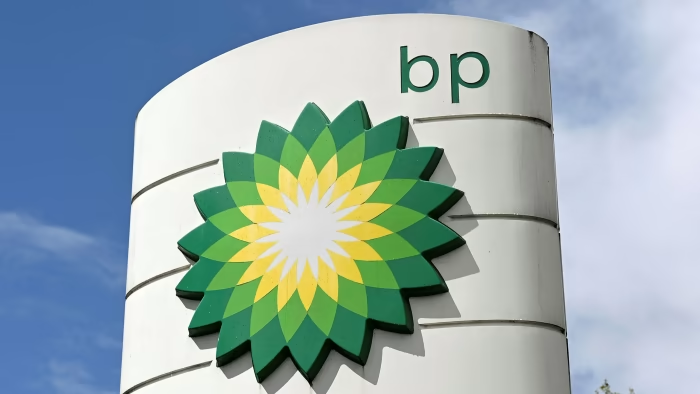Introduction:
Bp groeit, benzine, climate goals, brandstof,, In an era of increasing environmental awareness and evolving energy landscapes, oil and gas companies find themselves at a crossroads. Among them, BP, one of the world’s largest energy companies, stands out for its efforts to navigate the complex interplay between traditional fossil fuels, climate goals, and the demands of a changing market. This article explores BP’s growth trajectory amidst these challenges, focusing on its strategies regarding benzine, climate goals, and the future of brandstof (fuel).
BP’s Evolution and Market Position:
BP, formerly British Petroleum, has a storied history dating back to the early 20th century. From its origins as a regional player in the oil industry, BP has grown into a global energy giant with operations spanning exploration, production, refining, distribution, and marketing. Its iconic green and yellow logo has become synonymous with fueling the world’s transportation and energy needs.
However, as societal attitudes towards climate change have shifted and renewable energy sources have gained momentum, BP has faced mounting pressure to adapt its business model. The company has responded with a series of strategic shifts aimed at balancing its traditional hydrocarbon business with investments in cleaner alternatives.
Benzine: The Backbone of BP’s Operations:
Central to BP’s operations is benzine, the lifeblood of modern transportation and industrial activity. Despite growing calls for decarbonization, benzine remains a crucial component of BP’s revenue stream and global energy infrastructure. The company’s extensive network of refineries and fuel stations relies heavily on the production and distribution of benzine-based products.
In recent years, BP has faced challenges in maintaining the profitability of its benzine business. Volatile oil prices, geopolitical tensions, and regulatory pressures have contributed to fluctuations in profit margins. Additionally, the rise of electric vehicles (EVs) poses a long-term threat to the demand for traditional benzine-powered vehicles.
To mitigate these challenges, BP has adopted a multifaceted approach. This includes optimizing its refining operations to improve efficiency and reduce costs, expanding into emerging markets with growing demand for benzine, and investing in innovative technologies to develop cleaner forms of benzine.
Climate Goals:
BP’s Commitment to Sustainability: Amidst growing concerns over climate change, BP has made significant strides towards reducing its carbon footprint and aligning with global climate goals. In 2020, the company announced its ambition to become a net-zero carbon emitter by 2050, a bold commitment that has reshaped its strategic priorities.
To achieve this ambitious target, BP has outlined a comprehensive plan focused on three key pillars: reducing emissions from its operations, investing in low-carbon technologies, and advocating for policy changes to support the transition to a sustainable energy future.
In the realm of benzine production and consumption, BP is exploring various avenues to minimize its environmental impact. This includes increasing the efficiency of its refining processes to reduce emissions, investing in carbon capture and storage (CCS) technologies to capture and sequester CO2 emissions, and promoting the use of biofuels and renewable energy sources as alternatives to traditional benzine.
Furthermore, BP is actively diversifying its energy portfolio to include a greater proportion of renewable energy sources such as wind, solar, and hydrogen. Through acquisitions and partnerships, the company is expanding its presence in the rapidly growing renewable energy market, positioning itself as a leader in the transition to a low-carbon economy.
Brandstof:
The Future of Fuel: As the energy landscape continues to evolve, the future of brandstof is undergoing a profound transformation. Traditional fossil fuels are facing increasing competition from renewable alternatives, and consumer preferences are shifting towards more sustainable and environmentally friendly options.
In response to these changes, BP is reimagining the concept of brandstof for the 21st century. This involves not only developing cleaner forms of benzine but also diversifying its product offerings to include a range of low-carbon fuels and energy solutions.
One area of focus for BP is the development of advanced biofuels, which offer a renewable alternative to conventional benzine derived from fossil fuels. By investing in research and development, BP aims to unlock the full potential of biofuels as a scalable and sustainable solution for powering transportation and industrial processes.
Additionally, BP is exploring the potential of hydrogen as a clean and versatile fuel source. Through projects such as the production of green hydrogen from renewable sources and the deployment of hydrogen fuel cell vehicles, the company is laying the groundwork for a hydrogen-powered future.
Conclusion:
In conclusion, BP’s growth trajectory is shaped by its response to the challenges and opportunities presented by benzine, climate goals, and the future of brandstof. As the world transitions towards a more sustainable energy system, BP is positioning itself as a leader in the shift towards cleaner and more efficient energy solutions.
By leveraging its expertise, resources, and innovative spirit, BP is embracing the dual imperatives of profitability and sustainability. Through strategic investments, technological innovation, and a commitment to responsible business practices, BP is charting a course towards a more prosperous and sustainable future for itself and the planet.

